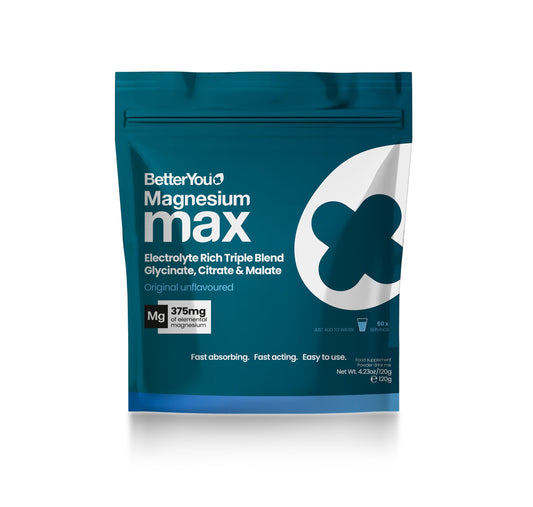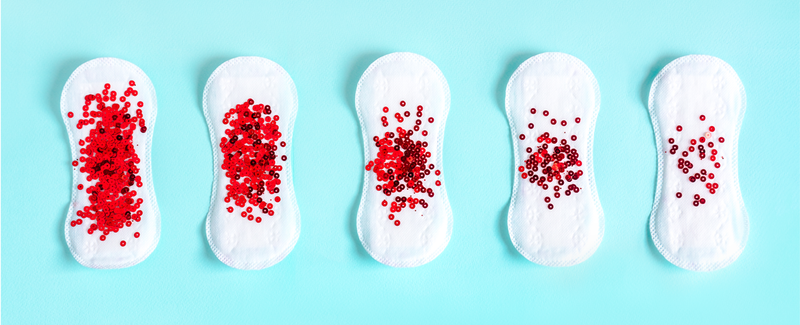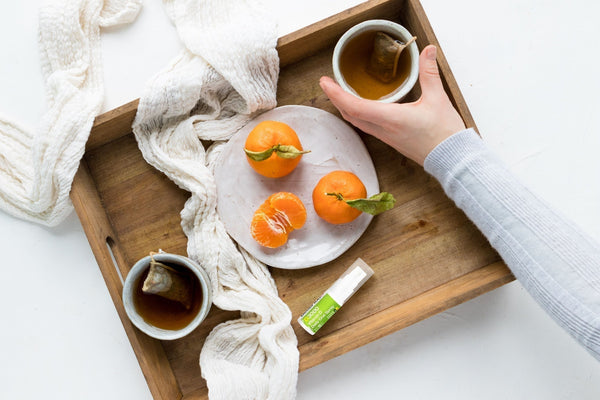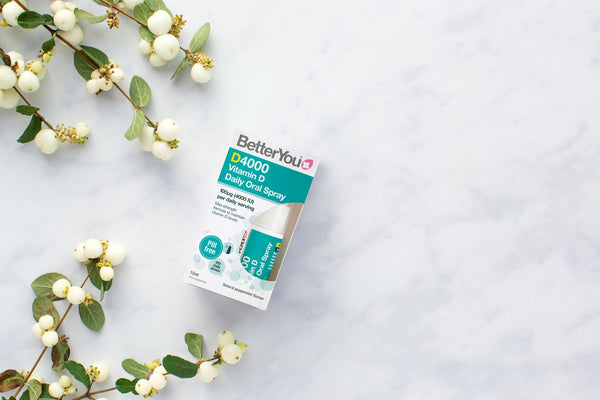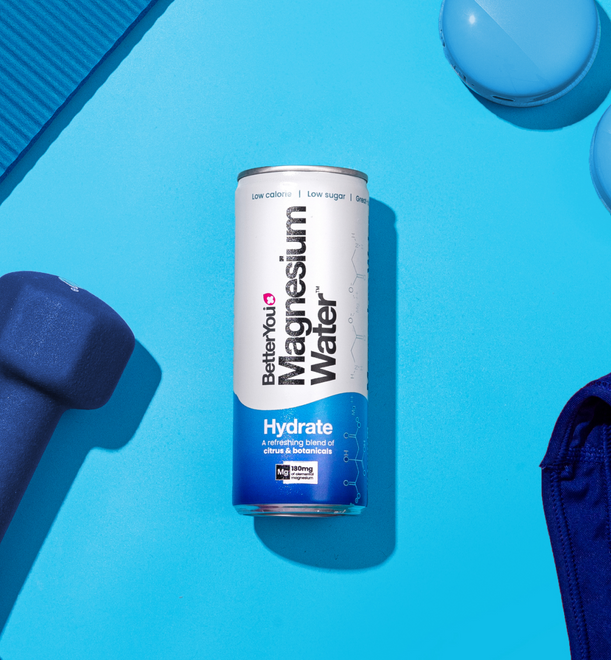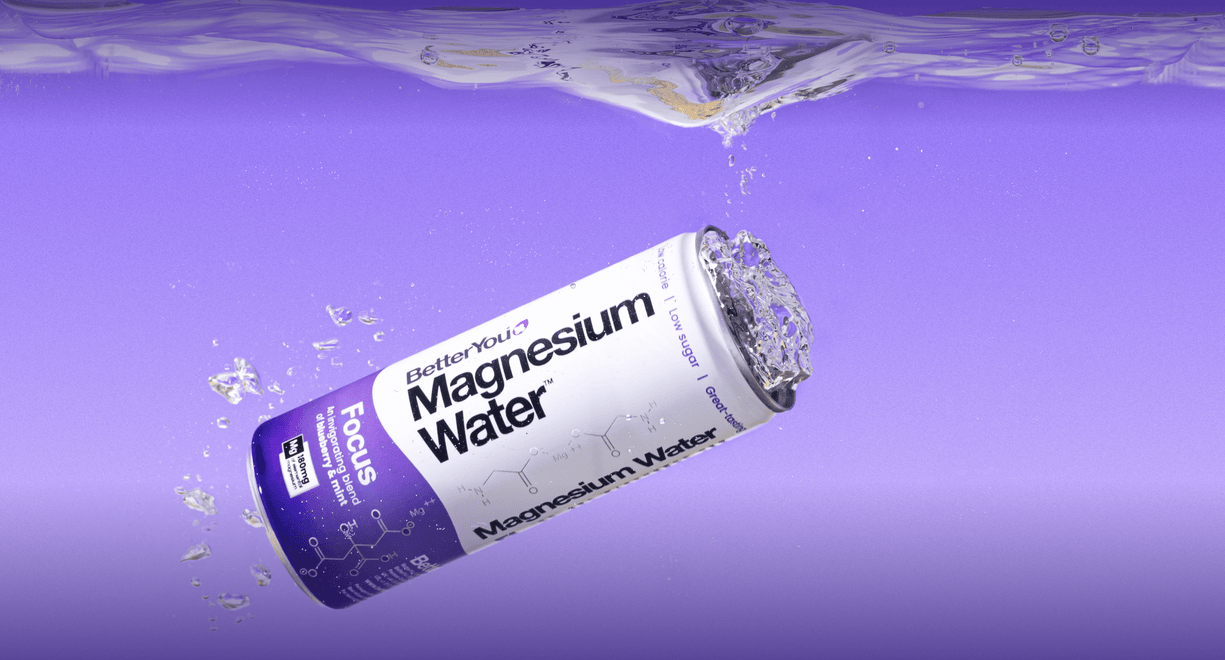A healthy period is something everyone who has a menstrual cycle aims for, whether that’s alleviating symptoms or balancing hormones. Alongside BetterYou, Integrative Nutrition Health Coach, Mellissa Laycy, looks at common symptoms of PMS, and what nutritional deficiencies could be making them worse. As well as offering holistic tips and tricks to help you have a healthy period.
Table of Contents:
- What is a Healthy Period?
- 10 Common Symptoms of PMS
- What Nutrients are Key to a Healthy Period?
- What the Experts say: Top Tips for a Healthy Period
What is a Healthy Period?
On average, women and those with periods, experience 450 periods throughout their lifetime and 75% are affected by varying degrees of Premenstrual Syndrome (PMS) every month.
Integrative Nutrition Health Coach, Mellissa Laycy, is here to help provide the information you need to have a healthy period. Mellissa’s training with The Institute of Integrative Nutrition helped her learn innovative coaching methods, practical lifestyle management techniques and over 100 dietary theories. She now helps others care for their physical and mental health through nutrition.
The length of a menstrual cycle differs from person to person, but the average sits at around 28 days. This means those with a healthy period would expect to have a bleed around every 28 days. Though it is common to have cycles that are longer and shorter than this, all of which can still be a healthy period.
A healthy period is one that is mostly regular, and the period of bleeding lasts around 2 to 7 days. A period is made up of blood and womb lining, which builds up within the uterus and is released at the start of each menstrual cycle.
10 Common Symptoms of PMS
PMS is a condition that affects a woman's emotions, physical health, and behaviour during certain days of the menstrual cycle. Doctors may put these down to a decline in hormone levels and a change in brain chemicals. Though symptoms may not be prevented, women's health supplements may help to relieve some of the side effects.
10 common signs of PMS to be aware of, include:
- Bloating
- Headaches
- Skin breakouts
- Tender breasts
- Discomfort in the lower back
- Food cravings
- The need for physical space
- Exhaustion
- Mood swings, including crying or feeling irritable and tense
- Hot flushes
Experiencing PMS symptoms can be part of a healthy period, and it’s helpful to be able to identify these signs, in order to help you feel more in tune with your own menstrual cycle. Symptoms differ from person to person throughout the cycle, and some may suffer during their period more than others.
What Nutrients are Key to a Healthy Period?
Research suggests that ensuring optimum levels of certain vitamins and minerals may contribute to a healthy period. Ensuring optimal nutritional intake can help to alleviate PMS symptoms and help to balance out your hormones.
Magnesium
If you’ve ever had a craving for chocolate at a certain time of your cycle, you might be surprised to know that this could be your body’s cry for magnesium. This is because magnesium regulates your glucose and insulin levels. So having magnesium deficiency, or low levels, may cause a sugar craving. Knowing this might be helpful for those who struggle with weight gain due to hormonal cravings during their period.
Not only that, but magnesium is a muscle relaxant which can help to relieve tension built up in your muscles. Applying a magnesium supplement daily to your abdomen and lower back can also naturally relax the muscles of the uterus and help to reduce abdominal discomfort during this time. Helping you feel more comfortable, and contribute to your healthy period.
Another benefit of magnesium is that it contributes to your sleep cycle. Supplementing magnesium can help you to get a deeper and more restful night’s sleep. This means you will be feeling more energised during the day, and more likely to feel in tune with a healthy period.
A warm soak with magnesium bath flakes is the perfect way to remineralise and increase your levels. As well as relax and soothe your PMS symptoms with a warm bath before bed. Alternatively, you could try a relaxing body massage with magnesium creams to wind down to a peaceful night’s sleep, and contribute to a healthy period.
Vitamin D
Vitamin D is another nutrient needed to contribute to a healthy period. Low levels of vitamin D, or vitamin D deficiency, can lead to lower oestrogen levels. In turn, this may cause us to experience symptoms such as mood swings, hot flushes, and low mood, which are also the beginning symptoms of the menopause.
Vitamin D is an important nutrient that helps to regulate the body’s adrenaline and dopamine production. These are hormones which contribute to elevating your mood, known as feel-good hormones. It is suggested that people with low dopamine levels may be more susceptible to low mood. Therefore, it is essential to maintain healthy vitamin D levels, especially in the darker months when our exposure to sunlight is lessened, in order to contribute to a healthy period and alleviate some symptoms.
Research has shown that a vitamin oral spray supplement is just as effective at elevating our vitamin D levels as traditional capsules. Therefore, if you suffer from a malabsorption disorder or simply dislike taking tablets, our vitamin D supplements could be the pill-free supplements you need. A hassle-free solution to a healthy period.
Iron
Another key nutrient for a healthy period is iron. The most common cause of iron deficiency in premenopausal women is heavy bleeding during menstruation. Therefore, you should test your levels if you think this might be an issue for you, to ensure you’re maintaining a healthy period. You can do this by visiting your GP or healthcare professional, or by simply using an at-home Iron Test Kit.
It is also advisable to take iron supplements to elevate levels if your intake is low. Symptoms of deficiency to look out for include fatigue, pale skin, and shortness of breath.
To maintain healthy levels of this essential nutrient, and contribute to a healthy period, try to eat lots of iron rich foods. These include foods such as red meat, beans, nuts, and some dark leafy vegetables. However, those with restricted diets may not be able to get as much iron as they need from their diet. That’s why BetterYou created vegan supplements and vegetarian supplements. To support those with dietary requirements to intake optimal levels of nutrients found in meat and animal products.
B-Vitamins
Taking a well-balanced vitamin B supplement can help to regulate PMS symptoms by reducing mood swings and irritability. This is because vitamin B aids in producing “feel good hormones”, such as serotonin and dopamine. In turn, these help to elevate your mood, and contribute to a healthy period.
It is also said that the egg quality of women with optimised B-vitamin intakes is more easily fertilised. One of the benefits of B-vitamins could be helping in the production of hormones that make the uterine lining stronger and positively impact levels of progesterone. Improving levels may therefore increase the chance of conception for those looking to conceive. Conception vitamins may contain vitamin B, to also aid in boosting your energy levels naturally while trying to conceive.
For a fast and effective way to supplement all eight B-vitamins, try our B-Complete Oral Spray that delivers all 8 B-nutrients directly into the bloodstream. When you're looking to obtain nutrients for a healthy period, make sure you choose the best supplements for your nutritional needs.
What the Experts say: Top Tips for a Healthy Period
On the whole, society has learned to accept the symptoms associated with PMS as normal, but with a few nutritional and lifestyle tweaks, women and those with periods shouldn’t have to suffer quite so much. Mellissa Laycy gives us her top tips for a healthy period:
- Communicate - For those in a relationship, it is important to communicate with your partner about what takes place for you each month during your period.
- Download a tracker app - I always recommend downloading a tracking app such as Clue or Flow which can act as a reminder for both you and your partner to know what to expect over certain days of the month. It also helps with learning to predict your own emotions and behaviours, cravings, energy levels and sleep habits around this time. That way, you can hope to quell a lot of confusion, and experience a healthy period.
- Keep a diary - I always suggest keeping a diary over three cycles of a healthy period to help you to start learning more about your cycle. The more familiar you are with the way your body works at this time, the more you can see a pattern and feel less worried. You might believe your thoughts less, and begin to feel more secure with the process as your body fluctuates. As well as getting you through hormonal changes which affect your mood during a period.
A final note. Remember this is a time of letting go, resting, reflecting, going inward. Expect less from yourself, not more, over this time and be kind to yourself.
Supplementing with BetterYou
At BetterYou, we specialise in pill-free nutritional supplementation. From energy supplements which help give you a necessary boost, to sleep supplements to help you drift off at night, support your health today.
